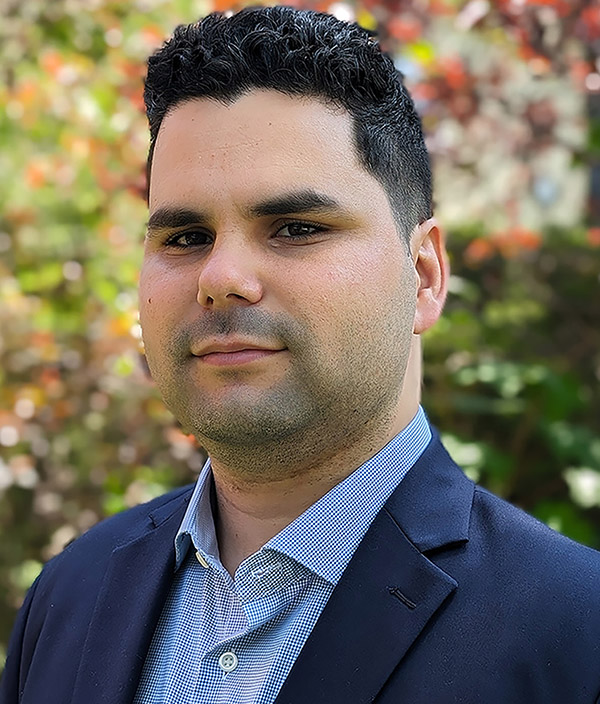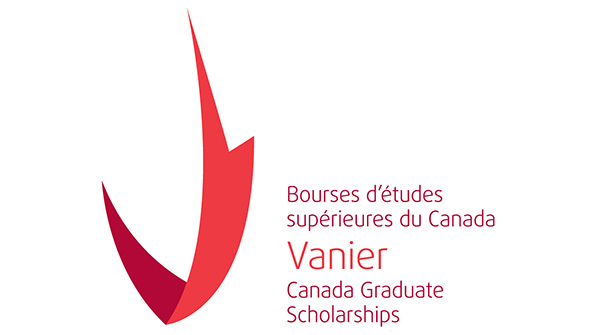 About being a Vanier Scholar
About being a Vanier Scholar
What does receiving a Vanier Scholarship mean to you?
Receiving a Vanier Scholarship is an incredible honour and a validation of my hard work and commitment to advancing research in my field. It also recognizes my dedication to fostering my academic background, leadership, and soft skills. This scholarship is a testament to my adaptability as an international student, demonstrating my ability to thrive in diverse environments. Being a Vanier Scholar also carries the high responsibility of living as an example for my peers and continuing to excel as I represent my country, culture, and people.
The Vanier program provides me with the financial support and resources necessary to focus on my studies and research, significantly facilitating my development as a scientist and a leader in my field. This scholarship also connects me with an extensive network of recognized scholars. It is an invaluable opportunity to learn from and contribute to a fantastic research community.
Tell us about your Vanier research.
Creating tissue models that replace traditional animal studies during the drug discovery process is highly desired. One of the more attractive strategies to fabricate accurate models that resemble the complexity of the native tissue is using three-dimensional (3D) bioprinting. This method allows the controlled deposition of cells inside hydrogels that simulate the cell environment in a layer-by-layer approach. Developing 3D-printed lung biomimetics is an excellent opportunity to study diseases like fibrosis. In that regard, modelling lung tissue is challenging because of the organ’s complexity and the stretching it experiences during breathing. Most systems employed to model this organ lack the complexity found in nature, where cells are in 3D environments and stretched in all directions.
We propose to use extrusion bioprinting to create 3D constructs that mimic the lung’s composition and mechanical properties and can be stretched. The stretching will be introduced using magnetic hydrogels that allow 3D actuation, improving the uniaxial stretching that most current models use. To accomplish that, we will develop high-printability protein-based bioinks and evaluate their interaction with the cells of interest. A magnetic 3D stretcher will be designed and validated to stretch multiple samples simultaneously. The lung tissue stretching experienced during breathing will be stimulated using the magnetic 3D stretcher. The models we propose to fabricate can lead to more accurate drug screening and tissue studies, improving the decision-making process regarding drugs and treatment for diseases like lung fibrosis and lung cancer.
About graduate student life
What inspired you to pursue a postgraduate degree?
My passion for science and research and my desire to contribute to society inspired me to pursue a postgraduate degree. I see obtaining a PhD as an avenue for achieving self-improvement, expanding my knowledge, and an opportunity to contribute to the academic community and society in general. I am motivated by the chance to make contributions that can advance science and improve the lives of others. In particular, 3D bioprinting captured my attention because of its potential to become a life-changing technology.
Why did you choose to study at McMaster?
I have always aspired to pursue my PhD in a top-ranked university with the ideal conditions to develop my research. McMaster University offers limitless opportunities to its graduate student community, not only because of its academic excellence and cutting-edge research facilities but also due to its outstanding support network. In particular, I found the Moran-Mirabal Research Group to be the ideal place to conduct 3D bioprinting, the research I am passionate about. Additionally, my role model as a scientist is my brother, who had an exceptional experience as a graduate student at this university.
What do you love most about your graduate program?
One of the most attractive aspects of my graduate program is the high quality of the courses it offers. It is a challenging program that fosters critical thinking, academic excellence, and proper research ethics. In addition, the professors are exceptionally talented and role models for the new generation of researchers. I am particularly thankful for my advisor, Dr. Jose Moran-Mirabal, whose support has made my journey in the department smooth and pleasant. I really enjoy doing science in his group. I also love the opportunities the department offers students to learn from outstanding speakers and leaders worldwide in diverse research areas.
What is your favourite thing about McMaster and the broader Hamilton community?
My favourite thing about McMaster’s campus is its beautiful natural surroundings. Living in Hamilton is fantastic; it has a nice balance between urban amenities and outdoor green areas like parks, trails, and waterfalls.
When you’re not busy being a graduate student, how do you like to spend your free time?
I like to spend my free time watching movies and TV shows, cooking, and doing outdoor activities like biking. I also enjoy sharing time with my family and friends.
Beyond Grad School
What do you see as the next step in your life journey?
My next step after graduation will be to develop the technology I have been growing at Moran-Mirabal Group. We are founding a startup company and I plan to develop ready-to-use bioinks and tissue models. I want to impact beyond academia, helping enhance public health. I would also love to continue doing research at the company. On a personal level, I will focus on building a positive environment for my family and spend as much time as possible with them.

